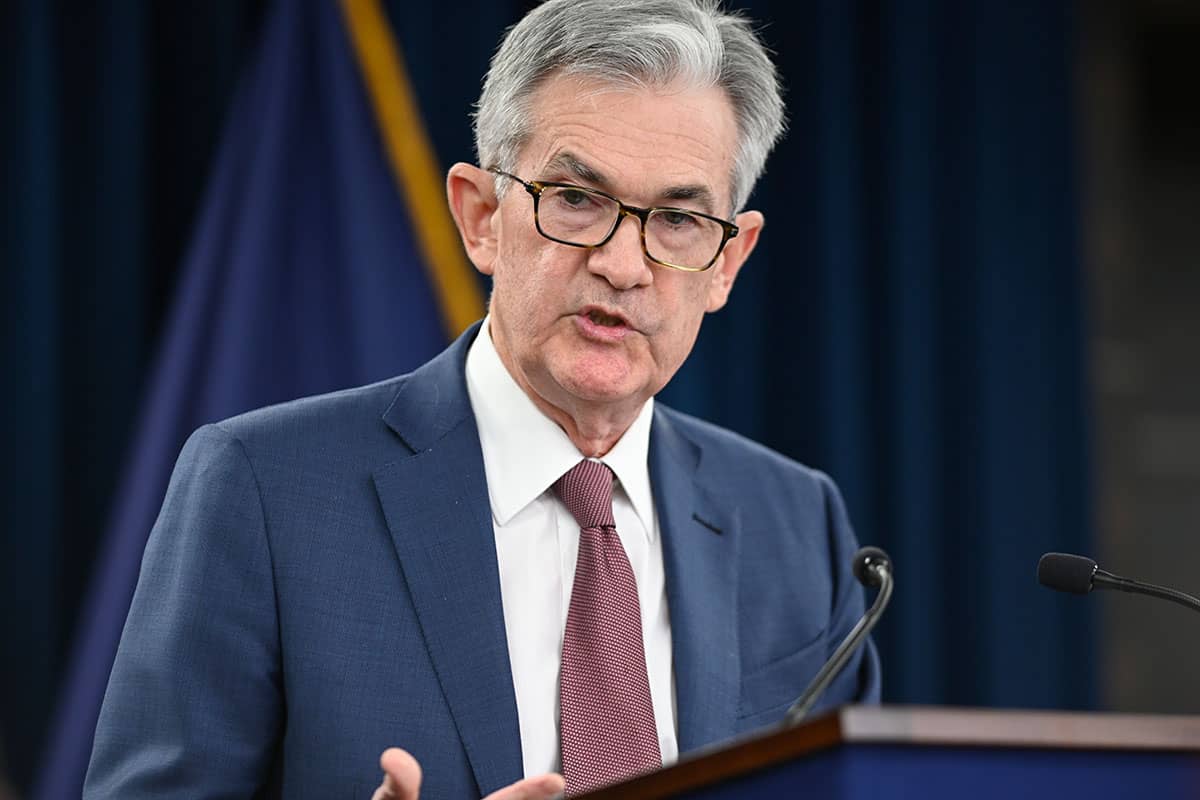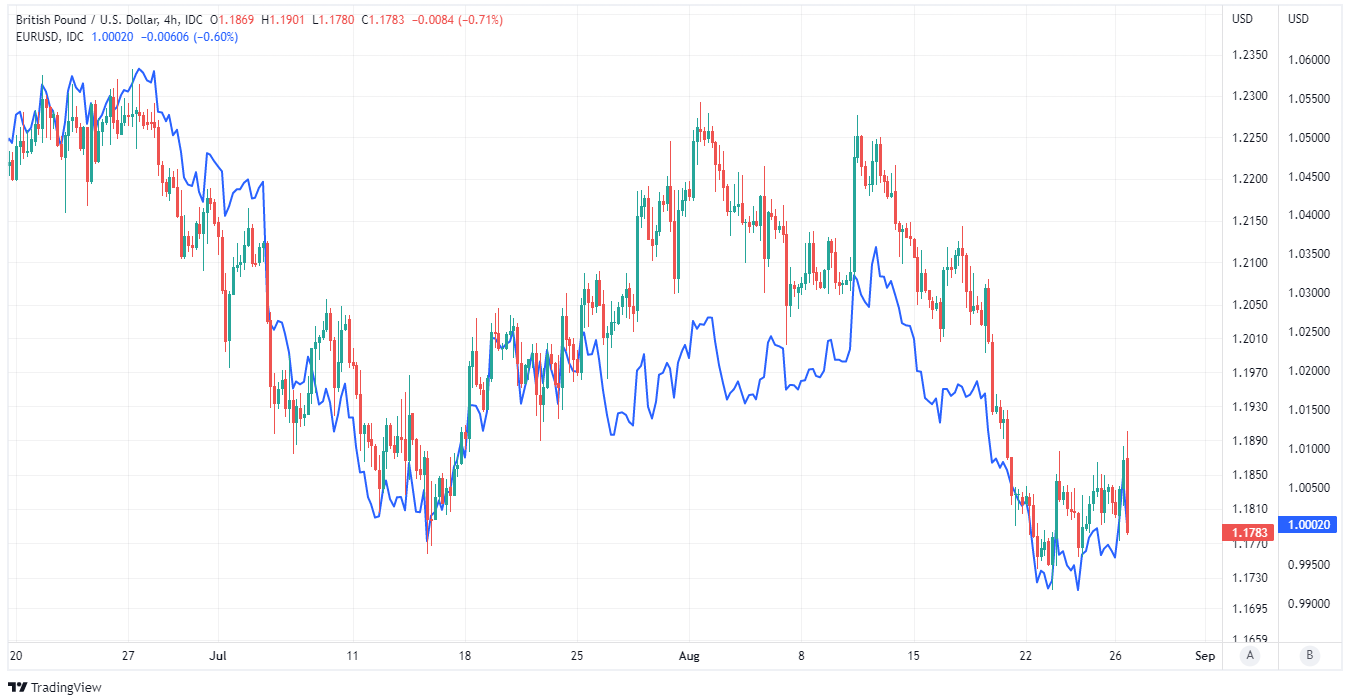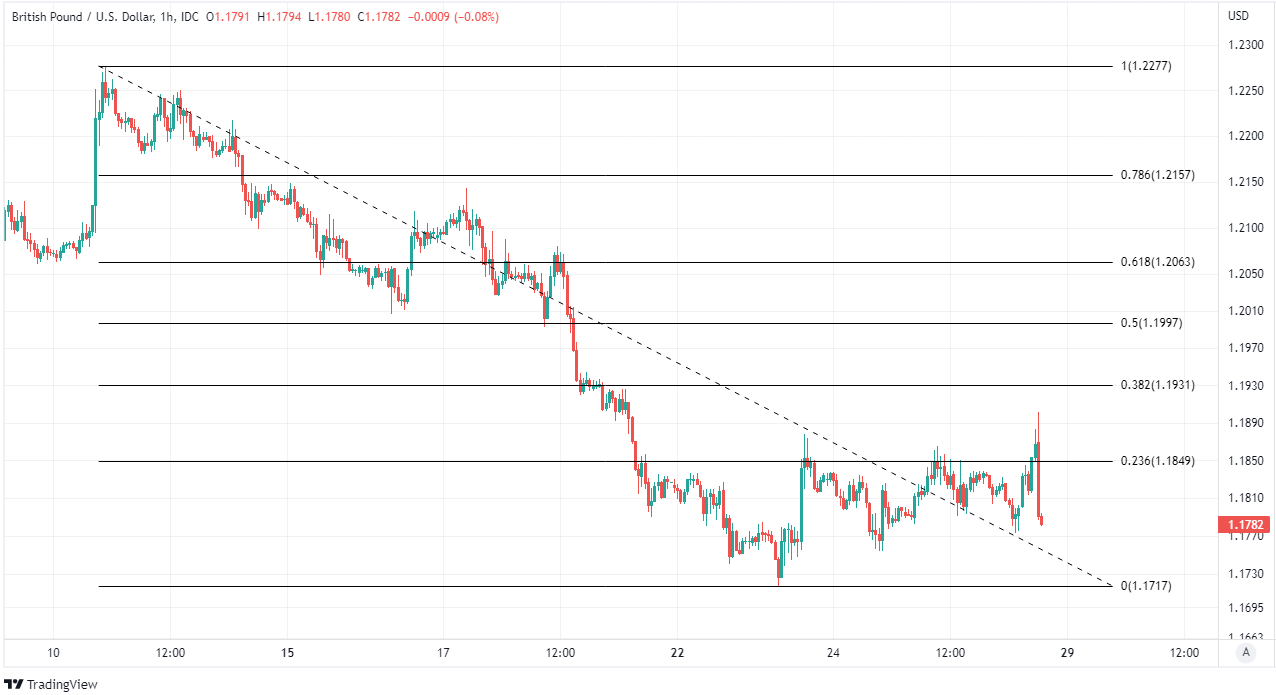Dollar Jumps after Powell Tells Jackson Hole Fed is Willing to Inflict Pain on Economy in Fight Against Inflation
- Written by: James Skinner
"While higher interest rates, slower growth, and softer labor market conditions will bring down inflation, they will also bring some pain to households and businesses. These are the unfortunate costs of reducing inflation." - Fed Chairman Jerome Powell

Above: Federal Reserve Chairman Jerome Powell. Image © Federal Reserve.
The Pound to Dollar rate rallied briefly on Friday but was quick to give up its gains after Federal Reserve Chairman Jerome Powell said that companies and households will face a growing struggle as the bank lifts its interest rate further in an effort to bring down U.S. inflation.
Sterling made a third attempt at climbing above 1.1849 against the Dollar on Friday, a level that has barred its path higher all week, after Chairman Powell suggested that July's fall in inflation does little to alter the interest rate outlook and spoke candidly about the tought times likely ahead of the U.S. economy.
"While the lower inflation readings for July are welcome, a single month's improvement falls far short of what the Committee will need to see before we are confident that inflation is moving down," he said in opening remarks at the Jackson Hole Symposium hosted by the Kansas City Fed.
"July's increase in the target range was the second 75 basis point increase in as many meetings, and I said then that another unusually large increase could be appropriate at our next meeting," he told the gathering of central bankers.
Much of the widely anticipated address focused on three lessons that policymakers are drawing from the Fed's experience with inflation in the 1970s and 1980s but not before Powell said and sustained increases in interest rates and the passing of time will be necessary to bring inflation down.
Above: Pound to Dollar rate shown at hourly intervals with Fibonacci retracements of mid-August decline indicating possible areas of technical resistance for Sterling. Click image for closer inspection.
GBP to USD Transfer Savings Calculator
How much are you sending from pounds to dollars?
Your potential USD savings on this GBP transfer:
$1,702
By using specialist providers vs high street banks
"Restoring price stability will take some time and requires using our tools forcefully to bring demand and supply into better balance. Reducing inflation is likely to require a sustained period of below-trend growth. Moreover, there will very likely be some softening of labor market conditions," Powell said.
"While higher interest rates, slower growth, and softer labor market conditions will bring down inflation, they will also bring some pain to households and businesses. These are the unfortunate costs of reducing inflation. But a failure to restore price stability would mean far greater pain," he added.
The Fed chair noted on Friday the clear signs of a slowdown in the U.S. economy during recent months but was also clear that this would be unlikely to dissuade the Fed of its June view that U.S. interest rates need to rise to and remain at a restrictive level near to four percent for an extended period to bring inflation back to the 2% target.
"At some point, as the stance of monetary policy tightens further, it likely will become appropriate to slow the pace of increases. Restoring price stability will likely require maintaining a restrictive policy stance for some time," Powell said.
"Recent individual projections from the June SEP showed the median federal funds rate running slightly below 4 percent through the end of 2023. Participants will update their projections at the September meeting," he added.
 Above: Pound to Dollar rate shown at daily intervals alongside EUR/USD.
Above: Pound to Dollar rate shown at daily intervals alongside EUR/USD.
GBP to USD Transfer Savings Calculator
How much are you sending from pounds to dollars?
Your potential USD savings on this GBP transfer:
$1,702
By using specialist providers vs high street banks
A wide range of U.S. data have suggested in recent weeks that the first half economic slowdown likely extended into the third-quarter, which could mean there is a risk of what would be a third consecutive contraction and a continued 'technical recession' in the U.S.
S&P Global PMI survyes suggested this week that recessions deepened in the manufacturing and services sectors in August, in continued contrast to the message of the the equivalent Institute for Supply Management surveys.
"While the latest economic data have been mixed, in my view our economy continues to show strong underlying momentum," Powell said on Friday."
"The labor market is particularly strong, but it is clearly out of balance, with demand for workers substantially exceeding the supply of available workers. Inflation is running well above 2 percent, and high inflation has continued to spread through the economy," he added.
Divergence was also seen in Federal Reserve surveys of the regional manufacturing industries released in the prior week with the Richmond and New York Fed surveys pointing to sharp downturns in business conditions while the Philadelphia Fed survey told of marked improvement.
These data all came amid a backdrop of deterioration of activity in the housing market and following two quarters of negative GDP growth.





